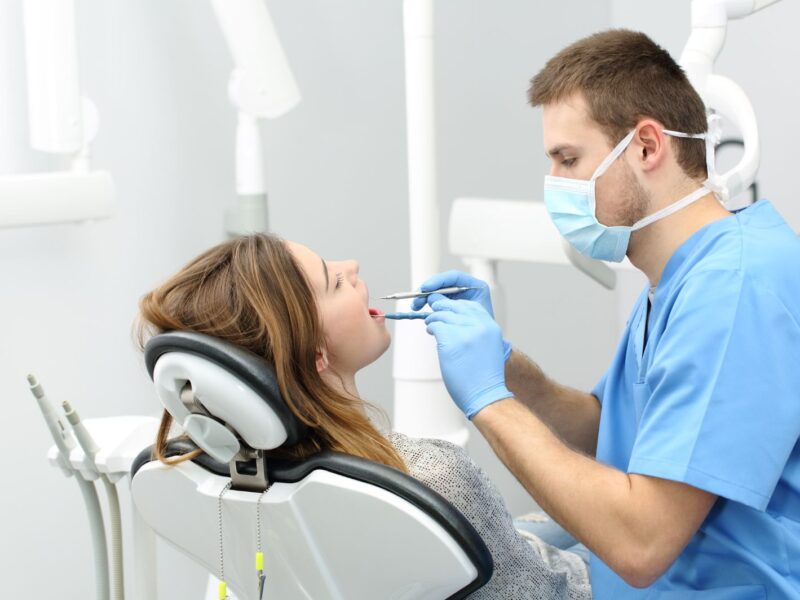Teenagers with co-occurring disorders face a unique set of challenges.
Living with a mental health disorder and substance use disorder simultaneously can be overwhelming and require specialized treatment to manage both disorders.
For many teens, navigating these challenges can be particularly difficult, and they must receive proper treatment and support to improve their overall well-being.
This blog post will explore three tips to help teens with co-occurring disorders manage their symptoms and enhance their quality of life.
We will also discuss the various teen co-occurring treatment options available to teenagers with co-occurring disorders, including medication, therapy, substance use treatment, family therapy, and holistic approaches.
Table of Contents
Seek Professional Help
The first step in treating co-occurring disorders is to seek professional help.
The first step can be difficult, as many teenagers may resist therapy or feel embarrassed about seeking help for their mental health or substance use issues.
However, it is essential to remember that seeking help is a sign of strength, not weakness.
Many different types of professionals can help teenagers with co-occurring disorders. Some options include:
- Psychiatrists: These medical doctors specialize in mental health and can prescribe medication to help manage symptoms.
- Psychologists: These professionals specialize in talk therapy and can help teenagers work through their thoughts and feelings.
- Counselors: These professionals can provide talk therapy and may also be able to offer guidance on managing substance use.
- Social Workers: These professionals can help teenagers connect with community resources and provide support and guidance for managing symptoms.
- Treatment Programs: Many different treatment programs are available for teenagers with co-occurring disorders. These programs can provide various services, including individual and group therapy, medication management, and substance use treatment.
Finding a professional with experience working with teenagers with co-occurring disorders is essential.
Research and outreach may be required, but finding an effective treatment provider is worth it.
Develop Coping Skills
Managing co-occurring disorders can be challenging, but there are coping skills that teenagers can develop to help them manage their symptoms. Some coping skills to consider include:
- Mindfulness: This practice involves focusing on the present moment and can help teenagers learn to manage anxiety and stress.
- Exercise: Regular exercise can help improve mood and reduce symptoms of depression and anxiety.
- Creative Expression: Engaging in creative activities, such as art, music, or writing, can provide an outlet for emotions and help teenagers feel more in control of their thoughts and feelings.
- Positive Self-Talk: Encouraging positive self-talk can help teenagers develop a more positive self-image and reduce negative self-talk.
- Time Management: Managing time effectively can help reduce stress and anxiety and improve overall well-being.
These coping skills may take time to develop, but they can become powerful tools for managing co-occurring disorders with practice.
Build a Support System
Building a support system is critical for teenagers with co-occurring disorders. This can include family members, friends, and professionals who can offer support and guidance. Some tips for building a support system include:
- Communicate: Teenagers must communicate openly about their struggles and needs with their support system.
- Be Selective: Not everyone will be supportive or understanding, so it is vital to be selective about who is included in the support system.
- Attend Support Groups: Support groups can provide a safe space for teenagers to connect with others who are going through similar struggles.
- Stay Engaged: Staying engaged in activities and socializing with others can help reduce isolation and improve overall well-being.
Teen Co-occurring Disorder Treatment
Treating co-occurring disorders requires an integrated approach that addresses mental health and substance use issues. Some common approaches to treatment include:
- Medication: In some cases, medication may be necessary to manage symptoms of mental health disorders, such as depression or anxiety. Teenagers must work closely with a psychiatrist to find the proper medication and dosage.
- Therapy: Talk therapy, such as cognitive behavioral therapy (CBT), can help teenagers learn to manage their symptoms and develop coping skills.
- Substance Use Treatment: Substance use treatment can include detoxification, inpatient or outpatient programs, and support groups such as Alcoholics Anonymous (AA) or Narcotics Anonymous (NA).
- Family Therapy: Family therapy can help improve communication and relationships within the family, which can be especially helpful for teenagers with co-occurring disorders.
- Holistic Approaches: Some holistic approaches, such as yoga or mindfulness meditation, can help manage symptoms and improve overall well-being.
Teenagers need to work with a professional who can help create an individualized treatment plan that addresses their unique needs and challenges.
In addition to professional treatment, there are steps that teenagers can take on their own to manage their symptoms and improve their overall well-being. Here are some tips to consider:
- Get Enough Sleep: Sleep is critical for both mental and physical health. Teenagers should aim for 8-10 hours of sleep per night.
- Eat a Healthy Diet: Eating a healthy, balanced diet can help improve mood and reduce symptoms of depression and anxiety.
- Stay Active: Regular exercise can help improve mood and reduce symptoms of depression and anxiety.
- Avoid Drugs and Alcohol: Drugs or alcohol can worsen symptoms and interfere with treatment.
- Practice Self-Care: Engaging in activities promoting relaxation and self-care, such as bathing or reading a book, can help reduce stress and improve overall well-being.
Managing co-occurring disorders can be challenging, but with the right approach, teenagers can learn to manage their symptoms and live healthy, fulfilling lives.
Critical steps in managing co-occurring disorders are seeking professional help, developing coping skills, and building a support system.
Teenagers can successfully manage their co-occurring disorders and live fulfilling lives by taking these steps and staying committed to treatment.



